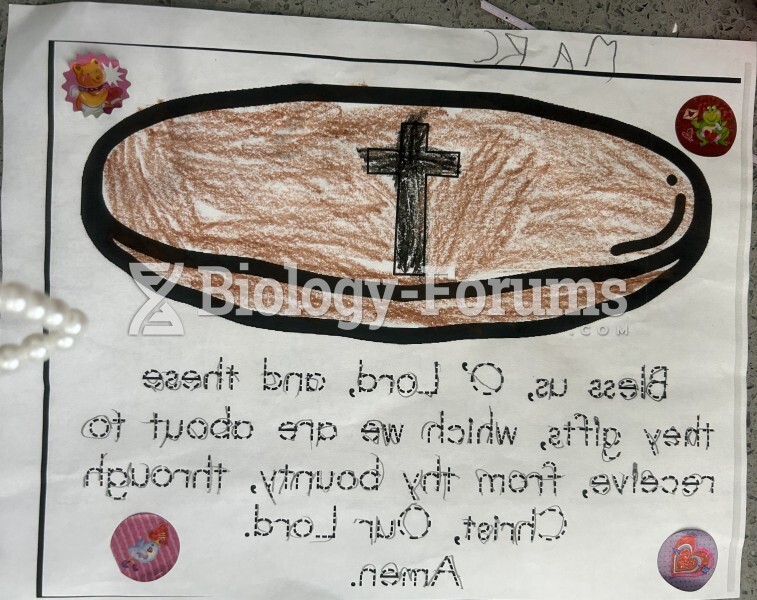Answer to Question 1
A
Feedback
A Correct. Children's talents also help in coping. For example, through drawing, writing prose or poetry, and other creative activities, children not only express their thoughts and feelings, but also use these media to cope.
B Incorrect. The nurse will not encourage the seriously ill child who has a talent for drawing and writing poetry to earn money to help the parents pay the hospital bill and for college tuition later.
C Incorrect. The nurse will not encourage this talent for drawing and writing poetry mainly for the purpose of getting the child to entertain himself and stay distracted from pain and discouragement.
D Incorrect. The nurse will not encourage this talent for drawing and writing poetry mainly for the purpose of getting the child to interact with other people on the unit who may have the same interests or hobbies.
Answer to Question 2
C
Feedback
A Incorrect: The adult abuser is not the victim of unnecessary medical treatment at the hands of another adult.
B Incorrect: The adult abuser was not the victim of unnecessary treatment in the past and now carries this pattern on.
C Correct: The adult abuser who receives a diagnosis of Munchausen syndrome by proxy uses this disease to escape from poor self-esteem, marital, physical, or mental problems. This disorder includes the intentional production or feigning of psychological or physical symptoms in the child for the purpose of indirectly assuming the sick role.
D Incorrect: The adult abuser is not an uncaring and cunning individual who has psychological problems similar to antisocial behavior. Many abusers fulfill the diagnostic criteria for borderline personality disorder with a rigid defensive structure and a poor identity formation.






